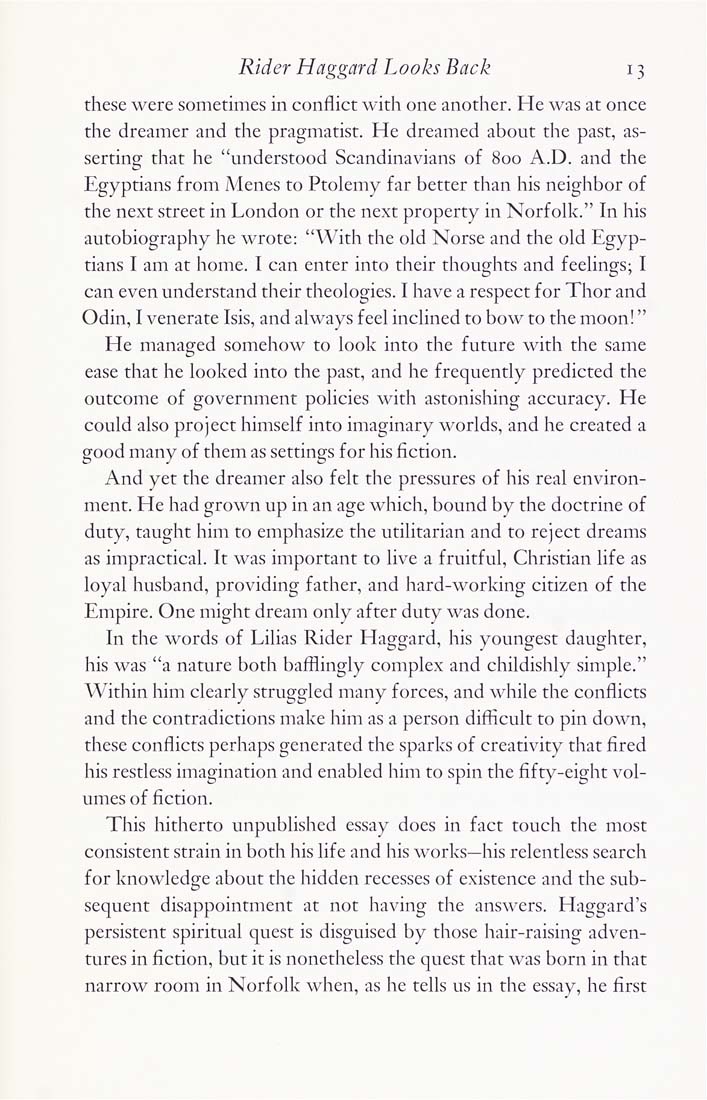Columbia Library columns (v.31(1981Nov-1982May))
(New York : Friends of the Columbia Libraries. )
|
||
|
|
|
|
| v.31,no.1(1981:Nov): Page 13 |

Rider Haggard Looks Back 13 these were sometimes in conflict with one another. He was at once the dreamer and the pragmatist. He dreamed about the past, as¬ serting that he "understood Scandinavians of 800 A.D. and the Egyptians from Menes to Ptolemy far better than his neighbor of the next street in London or the next property in Norfolk." In his autobiography he wrote: "With the old Norse and the old Egyp¬ tians I am at home. I can enter into their thoughts and feelings; I can even understand their theologies. I have a respect for Thor and Odin, I venerate Isis, and always feel inclined to bow to the moon!" He managed somehow to look into the future with the same ease that he looked into the past, and he frequently predicted the outcome of government policies with astonishing accuracy. He could also project himself into imaginary worlds, and he created a good many of them as settings for his fiction. And yet the dreamer also felt the pressures of his real environ¬ ment. He had grown up in an age which, bound by the doctrine of duty, taught him to emphasize the utilitarian and to reject dreams as impractical. It was important to live a fruitful. Christian life as loyal husband, providing father, and hard-working citizen of the Empire. One might dream only after duty was done. In the words of Lilias Rider Haggard, his youngest daughter, his was "a nature both bafflingly complex and childishly simple." Within him clearly struggled many forces, and while the conflicts and the contradictions make him as a person difficult to pin down, these conflicts perhaps generated the sparks of creativity that fired his restless imagination and enabled him to spin the fifty-eight vol¬ umes of fiction. This hitherto unpublished essay does in fact touch the most consistent strain in both his life and his works—his relentless search for knowledge about the hidden recesses of existence and the sub¬ sequent disappointment at not having the answers. Haggard's persistent spiritual quest is disguised by those hair-raising advett- tures in fiction, but it is nonetheless the quest that was born in that narrow room in Norfolk when, as he tells us in the essay, he first |
| v.31,no.1(1981:Nov): Page 13 |







